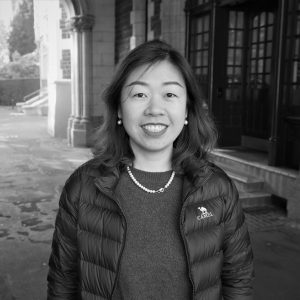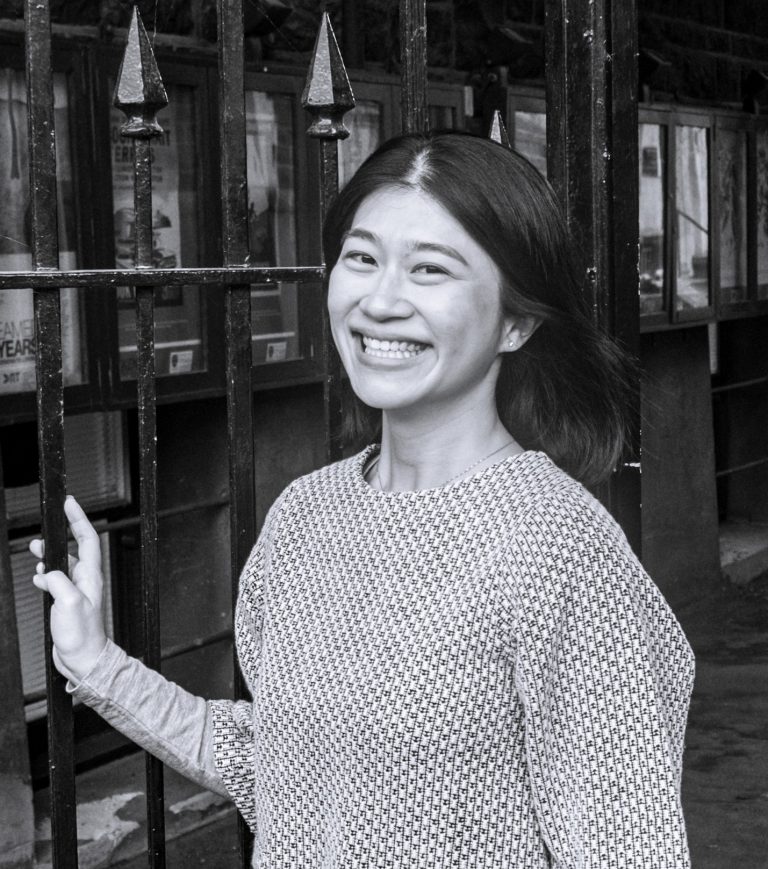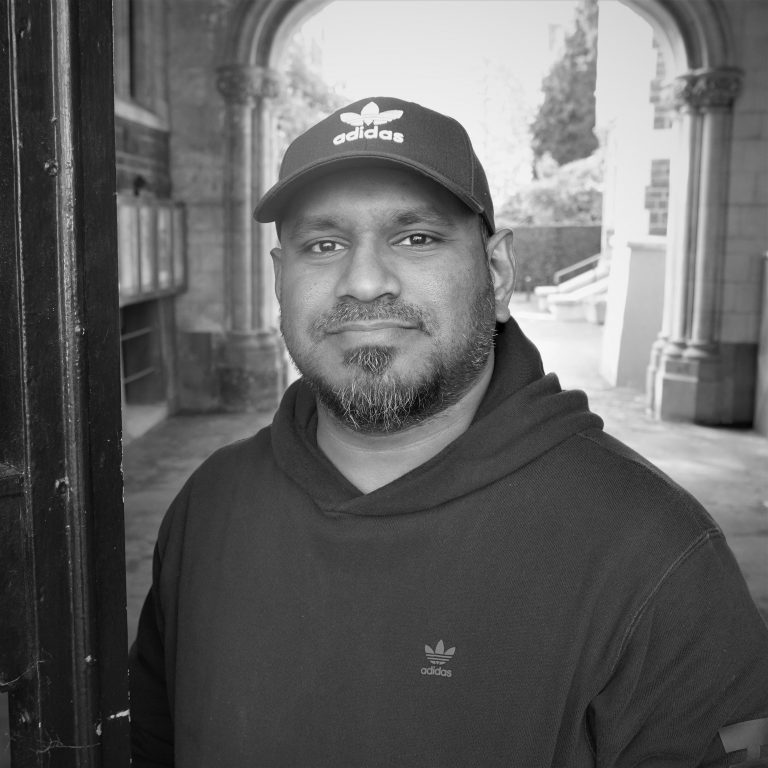PhD Supervision
EdTech PhD
The Higher Education Development Centre is home to a dedicated and hardworking group of postgraduate students who are exploring a range of EdTech topics from the implementation of micro-credentials to exploring how social media might assist in peer scaffolding as a collaborative learning process. Hailing from all over the globe, the HEDC building on Union Street East serves as their base for support from their supervisors and connection with their fellow postgraduates.
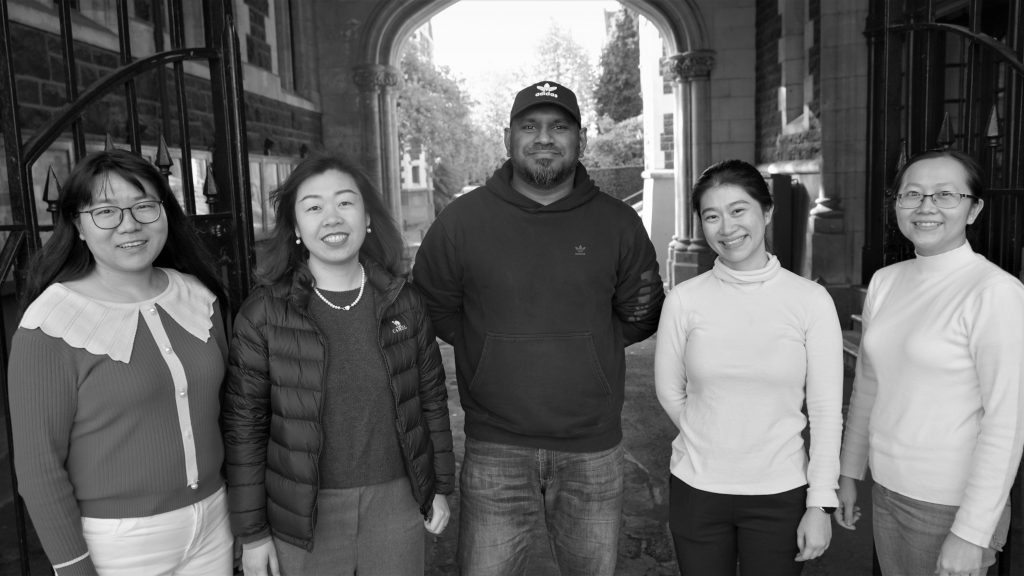
Our Current PhD Students
Dao Thi Hong Van
See Pei Jun
Jasbir Singh
Mary Ma Rui
Soovendran Varadarajan
Anjin Hu
Dao Thi Hong Van
I graduated with a master’s degree in Vietnam in 2017. I had been teaching English as a foreign language to students at FPT University, which nurtured my passion for teaching and research and gave wings to my dream of gaining a doctorate.
Since childhood, I have loved the beauty of New Zealand which I saw in pictures, books, movies and on television. I wished to live and study there. With this determination, I took the opportunity to approach Prof. Joyce and Prof. Ben who brought me to the mighty kiwi southern lands. I feel very grateful! Currently, I am researching the issue of interaction in the synchronous online learning environment. I hope my research results can contribute to the theoretical basis of enhancing online teaching quality in the future.
Dao Thi Hong Van’s primary supervisor is Associate Professor Joyce Koh
Dao Thi Hong Van’s co-supervisor is Professor Ben Daniel
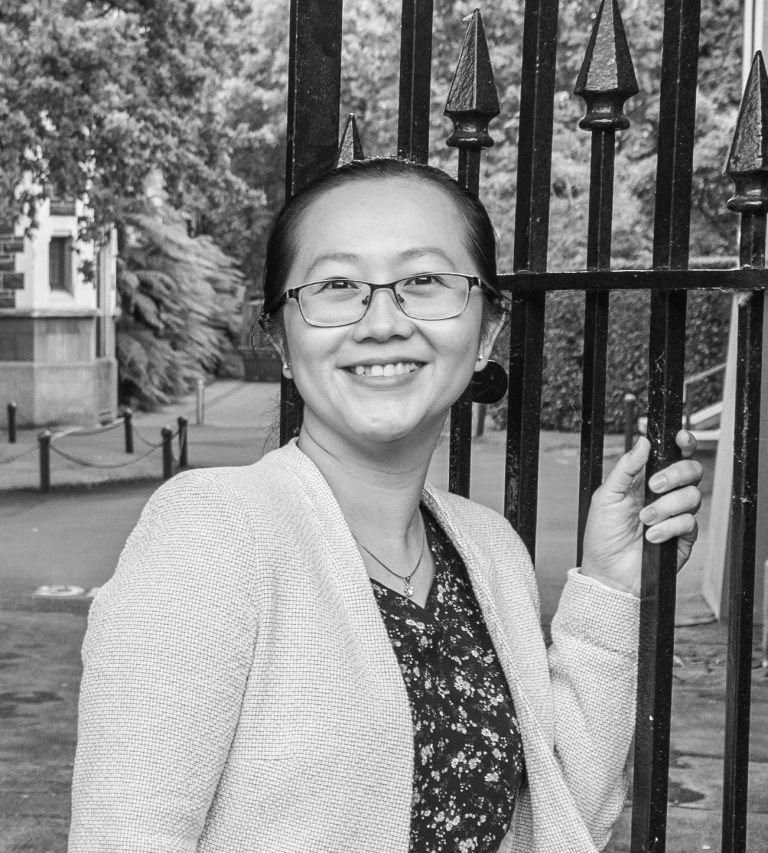
See Pei Jun
I graduated with a mathematics degree from the National University of Singapore in 2011. After that I taught at a high school for about 5 years before moving on to a role at the Ministry of Home Affairs. During my stint at the Ministry, I was part of the team that developed a system to train officers in incident management and decision-making skill through scenario-based simulation exercise. In addition, I conceptualised the training curriculum masterplan and articulated the competencies expected of Home Team Trainers and developers. Concurrently, I completed my masters while working at the Ministry. In those 5 years, I realised I couldn’t go any further without going deeper into the field of education and training, so I started to investigate completing a PhD.
My PhD topic is hybrid learning with particular focus on student motivations. With the arrival of COVID-19, everyone is used to online learning, but we haven’t yet figured out the best way to do it. Teachers can no longer gauge whether a student is attentive based on their students’ body language.
On a micro level, I hope my research will reveal what sort of learning activities draw a student’s attention during lesson time. On the macro level, I think online learning has the ability to shrink the world, bringing people from diverse backgrounds together. I want to figure out how we can foster student and teacher engagement and explore how online learning can be as effective as face-to-face. This is what I want to explore.
Pei Jun’s primary supervisor is Professor Ben Daniel
Pei Jun’s co-supervisor is Associate Professor Joyce Koh
Jasbir Singh
For the first 10 years of my professional life, I was teaching undergraduate students academic writing. I was first exposed to educational research when I did my masters, that was when I started using educational technology myself and I began to realise what it can do. Ben Daniel was my supervisor for my masters and when I came back to Otago University to pursue a PhD, he encouraged me to consider the field of educational technology. My interest is in helping students build their confidence as academic writers, I imagined it would involve creating some sort of intervention tool, but I had very little experience in using educational technology or programming software. Ben was determined that this should not hold me back from exploring this concept.
I began my PhD at a time of great change as the COVID pandemic hit and universities scrambled to move their teaching online. Text matching software like ‘Turnitin’ was being used as a way of policing students, essentially to catch them cheating. Students met the challenge by using other applications to get around the system. I thought to myself, there must be a better way to use these technologies, we could make them a friend instead of an enemy. It was an arms race between teachers and students to outsmart each other and in this war, ChatGPT resembled a bomb.
Ben Daniel was my primary supervisor for my PhD and Joyce Koh was my second supervisor. I can only sing their praises; they were the perfect duo for me. Their approaches to supervision and their personalities are very complementary. It makes you feel special as a student when your needs are being met. They gave me space, they put my mind at ease, and they answered my questions – that’s all I could ask for.
If you’re considering a PhD in EdTech I will tell you to go for it if you have a genuine interest in this area. You do not need to be techy, I wasn’t, but I was interested in how educational technologies could be used to meet the needs of students looking to increase their confidence as academic writers.
Jasbir’s primary supervisor is Professor Ben Daniel
Jasbir’s co-supervisor is Associate Professor Joyce Koh
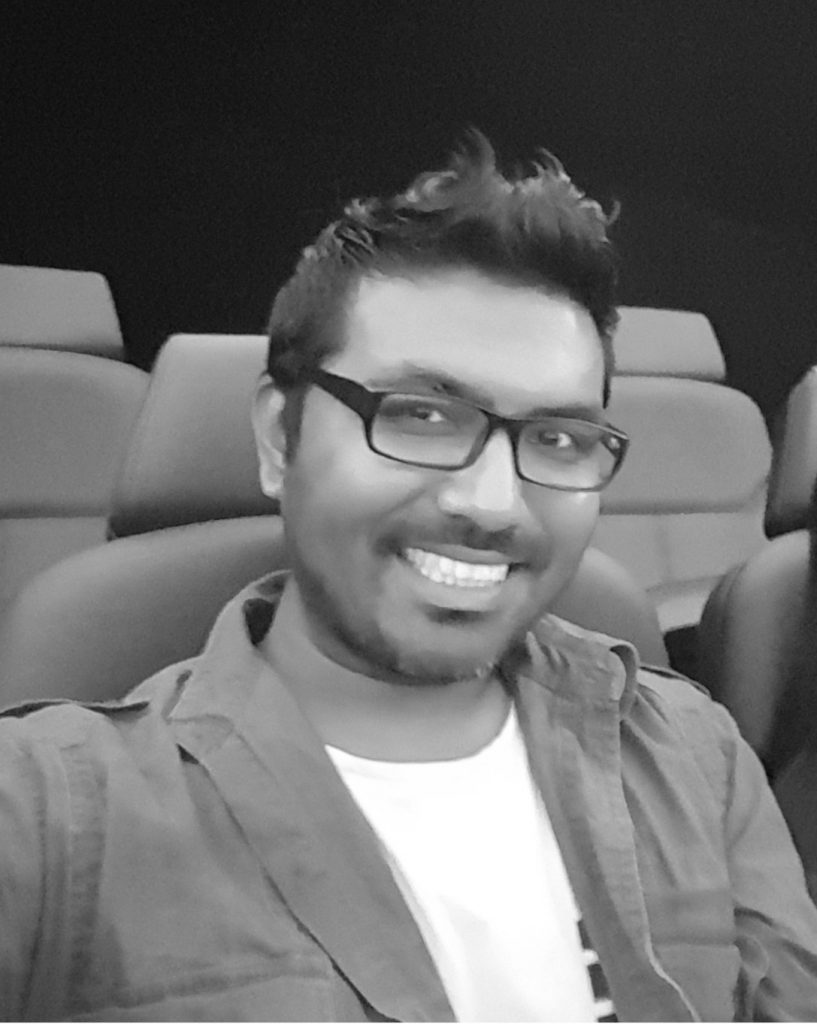
Mary Ma Rui
I completed my bachelor’s degree at the Northwest Agriculture and Forest University and then finished my master’s at the North-western Polytechnical University. I then began teaching intensive reading, writing and translation at the Xi’an Polytechnic University for 7 years. During this time, I noticed that students from disadvantaged backgrounds were often unable to immerse themselves in technology until they came to university. I became passionate about technology facilitated learning in Higher Education and wanted to further my interest in this area. When I researched papers on this topic, I came across the work of Professor Ben Daniel and Associate Professor Joyce Koh. That is how I came to apply for an EdTech PhD at the University of Otago.
I’m particularly interested in peer scaffolding as a collaborative learning process. This can be facilitated via WeChat which is a popular social communication tool in China. The idea arose from my teaching experience in China where I noticed my students were stuck to their phones 24/7. Though social media was not designed for learning, I wondered if it could be used to help students learn English via a model that provides both academic and emotional scaffolding. This is where my curiosity has led me and what I am investigating.
Mary’s primary supervisor is Associate Professor Joyce Koh
Mary’s co-supervisor is Professor Ben Daniel
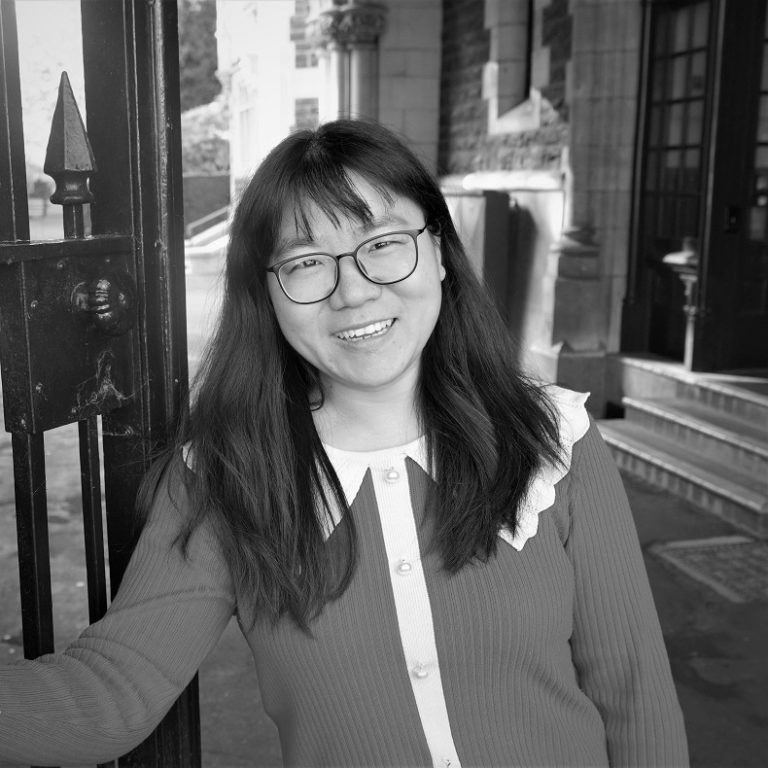
Soovendran Varadarajan
I have always been driven towards growth and learning. I’m from a family that values education highly, so my passion to pursue greater levels of knowledge is deeply rooted in me. I completed my bachelor’s degree in industrial biotechnology in 2008 in Malaysia. After that, I began working as a lecturer at a private college in Kuala Lumpur. I was teaching biology for A levels as well as a foundational science course for students pursuing a university education. During this time, I was able to complete a Master of Education, which I finished in 2018. In 2019, I started my own vocational training centre. This was when I dove into the world of micro-credentials. The pandemic had created a heavy demand for short courses as people pivoted in their professions and retrained to work in the online world.
I decided to pursue a PhD that was focused on higher education because it has a very different approach to research compared to secondary or primary education. The theoretical framework I’m creating will help universities assess their readiness for providing micro-credentials and identify gaps such as missing infrastructure or increasing student demand. I’ve always been curious about business models and how ideas can be packaged and delivered to get the best results. There is a lot of potential in the world of micro-credentials, and there is also huge demand as people look for faster and more affordable ways to train for employment. I’m enjoying exploring this area of higher education and working with my supervisors, Associate Professor Joyce Koh and Professor Ben Daniel.
Soovendran’s primary supervisor is Associate Professor Joyce Koh
Soovendran’s co-supervisor is is Professor Ben Daniel
Anjin Hu
I have been an English as a Foreign Language (EFL) teacher for 10 years after graduating from the University of Edinburgh with a Master of Science as part of their Teaching English to Speakers of Other Languages (TESOL) programme. Many years of teaching has given me a rich experience of teaching young children and college students, now I am looking to learn something new.
I’m interested in technology-enhanced learning, teaching and assessment, but I am a green hand in this area. I began reading journal papers on this topic and I came across articles written by my supervisors Qian, Joyce and Ben. That is how I came to apply for an EdTech PhD at the Higher Education Development Centre at the University of Otago.
My research area is technology enhanced authentic assessment. I’m exploring the value of authentic assessment and how it can bridge college students with their futures. A lot of researchers and teacher practitioners in Higher Education settings use authentic assessment to prepare their students and train them in transferrable skills such as higher order thinking. It’s important that authentic assessment is not only used to prepare students to become future workers but also to help society to improve. As people’s way of living and working are mediated and transformed by technology, how to meaningfully incorporate technology in authentic assessment design is an interesting area of research and I want to know what is technology-enhanced authentic assessment and what rules are guiding its design from multi-stakeholders’ perspectives.
Anjin’s primary supervisor is Dr Qian Liu
Anjin’s co-supervisor is Professor Ben Daniel
